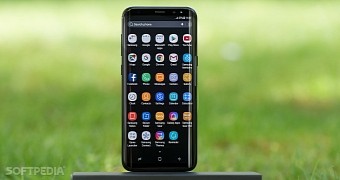Microsoft Andromeda, which many refer to as Surface Phone, is a project that was supposed to help expand the Surface lineup using an approach that the software giant used before and which would have essentially helped the company pioneer a new product category.
With a dual-screen design and revolutionary hinges allowing for several form factors, Andromeda was an ambitious idea that was expected to see daylight this year.
But according to the most recent rumors, work on this project does not advance as planned, and Microsoft has silently decided to push back the launch until at least the spring of 2019. I said at least because there’s a chance that Microsoft gives up on Andromeda entirely before it even sees daylight.
One of the reasons Microsoft decided to delay the release of this device was the software side of the project. Andromeda OS, the platform supposed to power it, isn’t ready, according to people with knowledge of the matter, and what’s more, the company isn’t satisfied with how the app ecosystem for such a new design is growing.
“The lack of apps is back.”
In other words, Microsoft is afraid that the lack of apps could make another victim, after Windows Phone failed due to developers not bringing their apps to the mobile platform.
But what if Andromeda ran Android? Isn’t this the easiest way to deal with the lack of apps and all the other challenges that such a new project would raise?
I know, Microsoft does want to have full control over their devices, and Windows 10 would offer a much wider array of features to customers, but with Android, Microsoft would be able to address most of the setbacks that forced the company to hold back Andromeda.
Microsoft is already deeply involved in the Android ecosystem, as it has a rich app portfolio that already recorded millions of downloads on the Google Play Store. This is actually Redmond’s own way to remain committed to mobile without its mobile platform, so investing in Android is definitely a priority.
“Microsoft deeply committed to Android.”
Furthermore, Andromeda was designed from the very beginning to offer multiple form factors, including laptop and tablet. Andromeda is fully prepared for such designs, and it can easily adjust to whatever size and form factor is being used. A dual-boot configuration could also be an option, though embracing this idea could mean that Microsoft would have to support two different operating systems at the same time.
The first time I raised the idea of Android on Microsoft’s new mobile device was in February this year when the delay wasn’t yet a thing and nobody knew that Andromeda OS was such a big challenge for Microsoft. In that article I explained that Microsoft choosing Android wouldn’t be such a big surprise:
“Microsoft is already selling Android phones into its own stores, so by launching its very own, the company does nothing more than to embrace the obvious,” I said.
While Android on Andromeda looks like a match made in heaven and makes sense for us, it’s certainly not an option for Microsoft for many reasons. The company would most likely prefer to cancel the project than launch it with Android, as today’s Microsoft is all about Windows 10 and Windows 10 only.
Unfortunately, this approach could mean that we might lose one of the promising devices in a long time, and by the looks of things, other companies are already exploring similar ideas. If nothing changes in the coming months, Microsoft might lose the opportunity to pioneer this design and it may eventually be late to the party despite being one of the first to invest in such a project.

 14 DAY TRIAL //
14 DAY TRIAL //